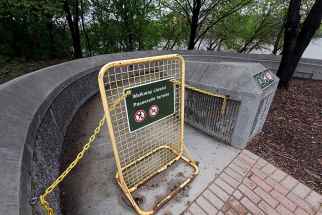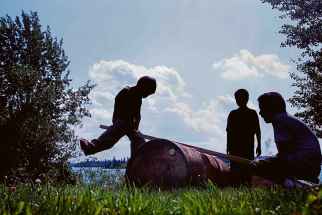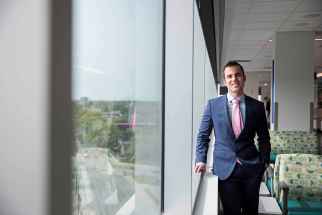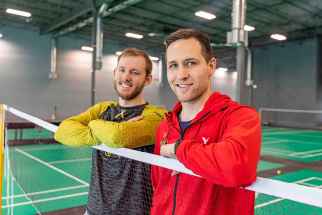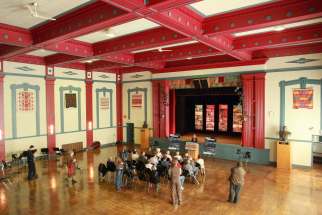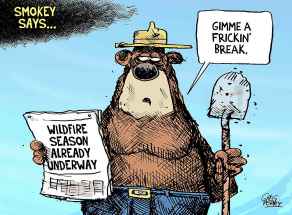We must resist the silence surrounding abuse
Read this article for free:
or
Already have an account? Log in here »
To continue reading, please subscribe:
Monthly Digital Subscription
$0 for the first 4 weeks*
- Enjoy unlimited reading on winnipegfreepress.com
- Read the E-Edition, our digital replica newspaper
- Access News Break, our award-winning app
- Play interactive puzzles
*No charge for 4 weeks then price increases to the regular rate of $19.00 plus GST every four weeks. Offer available to new and qualified returning subscribers only. Cancel any time.
Monthly Digital Subscription
$4.75/week*
- Enjoy unlimited reading on winnipegfreepress.com
- Read the E-Edition, our digital replica newspaper
- Access News Break, our award-winning app
- Play interactive puzzles
*Billed as $19 plus GST every four weeks. Cancel any time.
To continue reading, please subscribe:
Add Free Press access to your Brandon Sun subscription for only an additional
$1 for the first 4 weeks*
*Your next subscription payment will increase by $1.00 and you will be charged $16.99 plus GST for four weeks. After four weeks, your payment will increase to $23.99 plus GST every four weeks.
Read unlimited articles for free today:
or
Already have an account? Log in here »
Hey there, time traveller!
This article was published 24/05/2019 (2394 days ago), so information in it may no longer be current.
I don’t want to write this column.
It helps me to say that — it’s like a small acknowledgement of my fears and denial surrounding sexual and physical abuse in Indigenous communities.
How do you write about people you call auntie or uncle or brother or grandfather when they do things that spark feelings you reserve for serial killers and rapists?
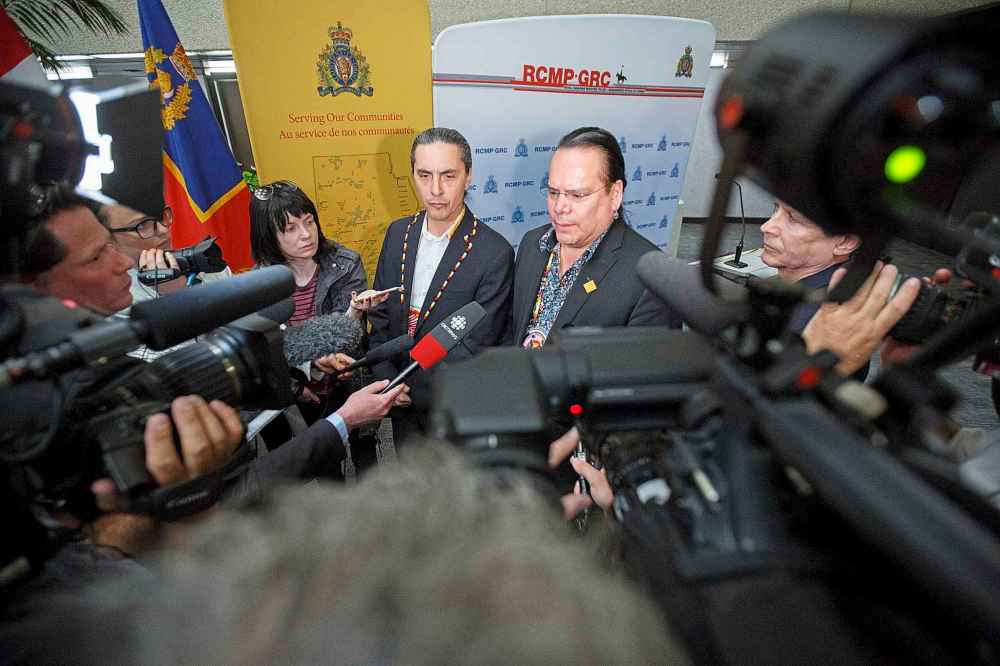
Why not choose another column topic for this week? The exoneration of Chief Poundmaker by Prime Minister Justin Trudeau looks like a good story.
I admit, I tried to. I tried to swallow my emotions after hearing about 17 children on Garden Hill First Nation who police say were sexually and physically abused between 2011 and 2017.
On Thursday, RCMP charged two Garden Hill men with multiple sexual offences. Police also charged one of the accused’s grandmother, who was running a foster home, with failure to report a child in need of protection and failure to provide for a child in need of protection.
If true, jail seems not enough.
So much for swallowing my feelings. It’s hard to sit with the anger, confusion, and disgust.
On one level, it’s not that difficult. People who perform crimes, particularly on children, deserve little mercy.
According to the messages in my inbox this morning calling for me to decry everyone from the chief of Garden Hill to the RCMP to community members, many people feel the same.
It would be easy to explain how abuse was rained down on First Nations students in residential schools and brought home to our communities, infecting our homes like a plague and instilling legacies of trauma that live on.
It would be even simpler to connect abuse to poverty and suffering wrought by the Indian Act and explore how when you take away the power of a people, some of those people seek power in other, sometimes terrible, ways.
I could even argue Indigenous peoples should be solely in charge of the welfare of Indigenous children — as the federal government has recently announced it is going to do — and use words such as sovereignty and autonomy.
I would even recognize the alleged abusers in the Garden Hill case are Indigenous and the children were in the care of an Indigenous person, yet the point would still be a broken system is still broken, no matter who is in charge.
I could do all of that. But none of it will stop the abuse.
Every single Indigenous person I know either knows, is related to, or lives in a community where someone who has abused a child. If not this, they have witnessed abuse, felt its impact, or have been abused themselves.
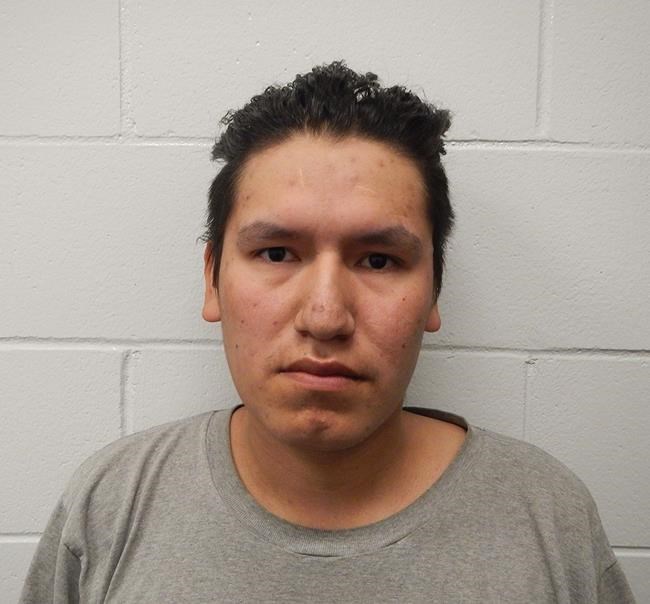
I wish I was making this up.
In my own life, I know of a principal who sexually abused students at his school, a grandfather who raped his grandchildren, and a woman who let her boyfriend beat her children in front of her.
Just this morning, I told Indigenous friends I was writing this column — and in response heard stories of child prostitution, punishments (such as being locked in a closet), and unwanted pregnancies from incest.
I heard about threats by abusers and their families if anyone reported abuse.
Some of these stories involved Garden Hill First Nation, others far and near places, and the rest Winnipeg.
Hearing each story is like receiving a stab wound in the chest, shared by someone you care about. These are our partners, our grandparents, our nieces and nephews.
This is often why these stories are in hushed tones, because one of the lasting legacies of abuse is silence.
This just a bit of why it’s so complicated.
I don’t know how someone can hurt a child. I don’t know how a mind twists and turns and arrives on the thought that violence is OK. I don’t know how someone can force themselves onto anyone vulnerable.
All I know is abuse is never just about an abuser and who they abuse. It’s also about the witnesses, the community, and everyone who comes after.
Abuse is something that happens in community and impacts a community.
No one “gets over” abuse because it’s something carried always. Some days, the weight feels lighter. Others, it’s heavier.
The issue of child abuse in Indigenous communities is an epidemic and it impacts all of us: Indigenous and non-Indigenous peoples.
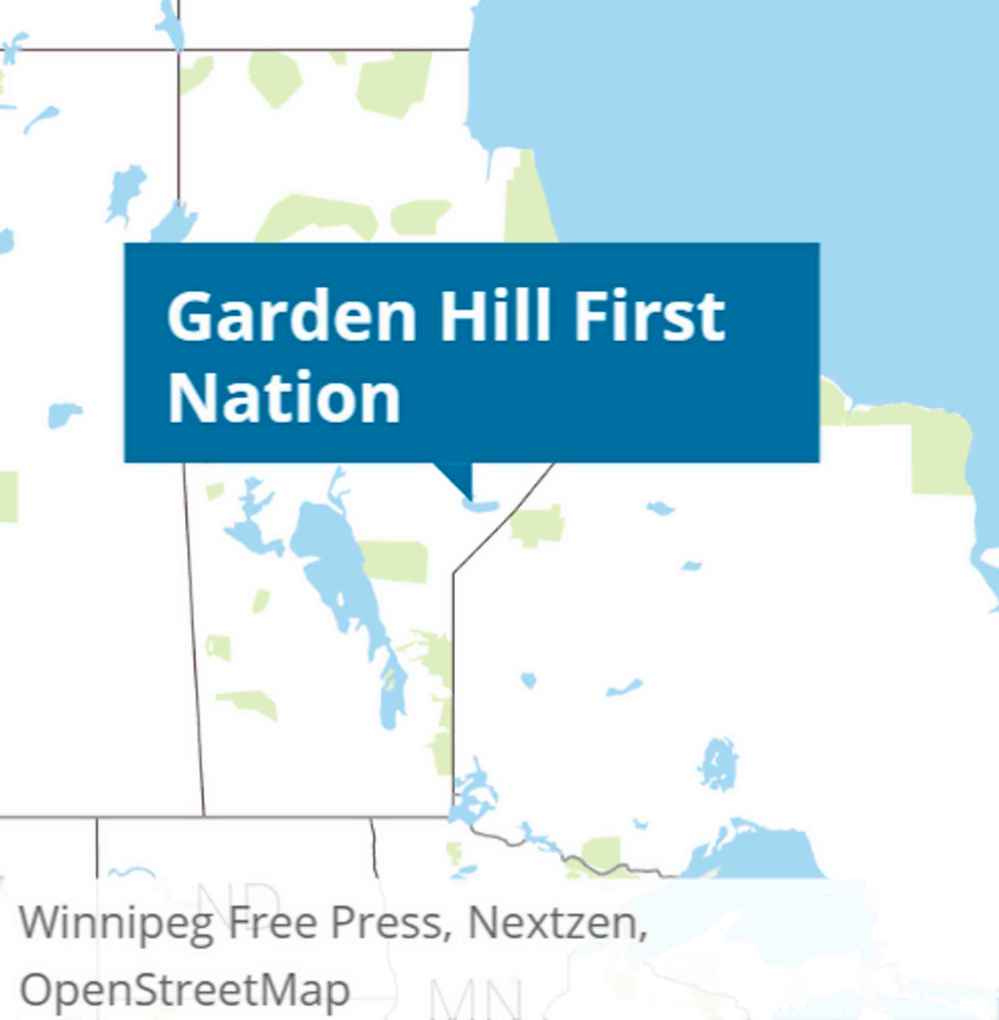
The most confusing and upsetting part is how antithetical abuse is to everything I know about Indigenous ceremonies and traditions.
My favourite part of being Anishinaabe — indeed, some of the best parts of Indigenous cultures — is how we treat our children.
In the lodge, we talk about children as leaders, visionaries, and teachers.
In our societies, our uncles and aunties are as important when raising children as parents are — in fact, they’re often more important. Our uncles and aunties give our children names, teach them how to make fires and the beauty of their bodies, and protect them from harm.
Our grandparents carry the most important role of all with children. The word for great-grandparent in our language is the same as the great-grandchild, meaning they are one in the same.
Taking care of children means taking care of ourselves. Our future.
This is why we have to talk about abuse. We have to face the complications.
We must resist the silence, even when fear, anger, and denial appear.
niigaan.sinclair@freepress.mb.ca

Niigaan Sinclair is Anishinaabe and is a columnist at the Winnipeg Free Press.
Our newsroom depends on a growing audience of readers to power our journalism. If you are not a paid reader, please consider becoming a subscriber.
Our newsroom depends on its audience of readers to power our journalism. Thank you for your support.



